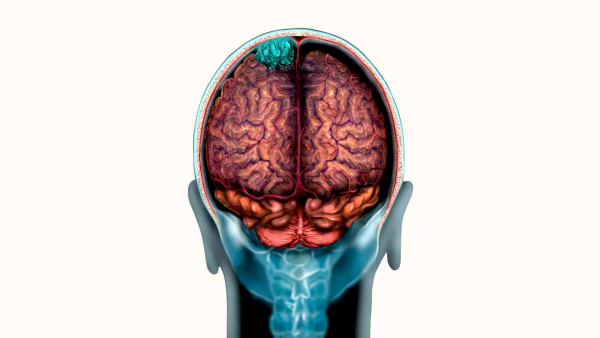What is Meningioma?
Meningioma is a type of benign tumor that arises from the meninges, the protective membranes surrounding the brain and spinal cord. These tumors are typically slow-growing, rarely cancerous, and often treatable with surgical intervention. Meningiomas generally originate from meningeal cells and are most commonly found around the cerebral cortex, cerebellum, optic nerves, and spinal cord.
What Are the Symptoms of Meningioma?
Meningiomas often remain asymptomatic and are frequently discovered incidentally during brain imaging performed for unrelated reasons, such as headaches. However, as they grow or exert pressure on specific brain regions, they may cause symptoms such as headaches, vision problems, balance disturbances, or neurological deficits.
How Are Meningiomas Diagnosed?
Meningiomas are usually diagnosed through imaging studies such as computed tomography (CT) or magnetic resonance imaging (MRI). These imaging tests help determine the tumor's location and size.
Early Genetic Diagnosis in Meningiomas
Genetic testing is particularly important for individuals with a family history of meningiomas or those associated with certain genetic syndromes. Mutations in genes such as NF2, PTEN, SUFU, SMARCB1, SMARCE1, MN1, PDGFB, and FOXM1 have been linked to familial cancer syndromes. A thorough family history should be obtained.
If a predisposing mutation is detected, early screening can be initiated for proactive monitoring. The genetic early diagnosis process aims to identify specific genetic alterations and develop corresponding management strategies. However, each step of this process must be carefully managed, and genetic counseling is strongly recommended. The decision to pursue genetic testing depends on the individual’s clinical status, family history, and presenting symptoms.
Classification of Meningiomas
Meningiomas are generally classified into three grades:
-
Grade I (Benign): Typically slow-growing, with a low recurrence rate.
-
Grade II (Atypical): May grow more rapidly and have a higher risk of recurrence.
-
Grade III (Anaplastic): More aggressive, with a tendency to grow and spread more quickly.
Treatment Process
Treatment of meningiomas usually involves surgical resection. However, the treatment plan is tailored to the patient’s specific case, considering factors such as the size and location of the tumor and the patient's overall health. In some cases, postoperative radiotherapy may be recommended.
Prognosis
Most meningiomas are benign, and the prognosis is generally favorable when treated. However, some tumors may recur despite surgery or exhibit more aggressive behavior.
Meningiomas are often incidental findings that can be effectively treated, but every patient and every tumor is unique. Therefore, an individualized treatment plan should be developed by a healthcare professional based on the specific circumstances of the patient.
Genetic Screening Tests Used for Meningiomas
-
FOXM1 (9 exons)
-
Monosomy 22, (del22, LOH 22) (SNP array)
-
SMARCB1
Genetic Tests Related to Pituitary Adenomas (which may sometimes be relevant in differential diagnosis or co-occurring findings)
-
AIP (Next-Generation Sequencing - NGS)
-
GNAS (Next-Generation Sequencing - NGS)
-
USP8 (Next-Generation Sequencing - NGS)


















